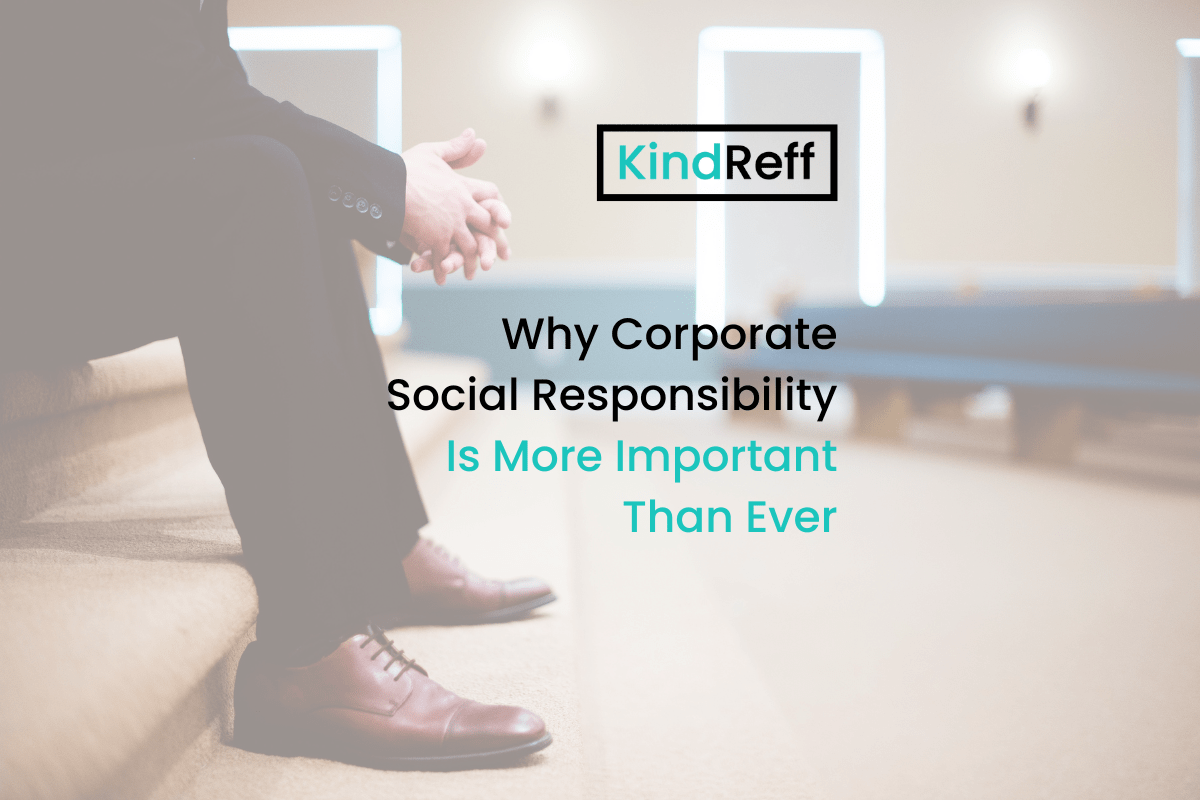
Why CSR Is Key for Modern Businesses
In an era where companies are more visible and interconnected with their communities and the world than ever before, Corporate Social Responsibility (CSR) has taken on new urgency.
As environmental challenges, social justice issues, and the call for ethical business practices intensify, Australians are placing greater importance on how businesses impact the world around them. Companies that embrace Corporate Social Responsibility (CSR) and weave it into their operations aren’t just doing the right thing; they’re positioning themselves to thrive in an increasingly purpose-driven economy.
Changing Expectations of Businesses
For today’s consumers, corporate accountability isn’t just a bonus—it’s expected. Research shows that 70% of consumers are more likely to back brands that reflect their personal values, and this sentiment spans all generations. From Millennials to Baby Boomers, Australians want to see companies making a positive contribution to the environment, society, and their local communities. People expect businesses to prioritise sustainable sourcing, fair labour practices, and equal opportunities for everyone.
As businesses adapt to meet these expectations, they are learning that CSR is much more than philanthropy. It’s about embedding positive, long-term impact into the core of their operations—something that modern consumers, investors, and communities value deeply.
The Benefits of CSR: Building Trust and Loyalty
One of the biggest advantages of embracing CSR is the powerful connection it creates between a business and its customers, as well as its employees. Businesses known for their ethical practices earn trust and loyalty, setting themselves apart in competitive markets. This reputation can sustain a brand through tough times, making it a more attractive option for customers, employees, and investors alike.
CSR also fosters deeper connections with communities. From supporting local charities to investing in sustainable practices, businesses can build genuine goodwill. This commitment to making a positive difference strengthens relationships with customers and stakeholders, enhancing their reputation and impact.
CSR’s Role in Attracting and Retaining Talent
A strong CSR strategy is also a drawcard for job seekers and helps retain employees. Today’s workforce, particularly younger Australians, wants to work for organisations that share their values and act responsibly. When employees feel part of a company committed to making a difference, they’re more likely to be engaged, motivated, and loyal.
From volunteer programs to ethical business practices, CSR initiatives create a sense of pride and purpose among team members. This doesn’t just lift morale but also builds a culture of community and teamwork within the organisation.
CSR and Innovation
Pursuing CSR often leads to innovation. Whether it’s creating eco-friendly products, rethinking packaging, or reducing waste, CSR challenges businesses to think creatively. These initiatives can reduce environmental impact and often lead to cost savings, streamlined processes, and better customer experiences.
For instance, a business aiming to reduce its carbon footprint might adopt energy-efficient production methods or partner with sustainable suppliers. These efforts not only help the environment but also position the company as a leader in sustainability, appealing to customers who care about the planet.
Financial Benefits of CSR
Investing in CSR can also deliver financial rewards. Building strong customer relationships, reducing staff turnover, and accessing new markets often leads to better performance for businesses prioritising CSR. Responsible practices also help businesses navigate regulatory changes and compliance, avoiding costly fines and disruptions.
Additionally, CSR opens doors to partnerships with other socially responsible organisations. Collaborating with like-minded businesses amplifies impact and builds positive associations, increasing brand appeal and expanding market opportunities.
A Framework for a Better Future
As global challenges like climate change, social inequality, and economic disparity grow, CSR offers a framework for businesses to shape a positive future. When companies operate with integrity and a focus on broader societal well-being, they contribute to a more sustainable and equitable world.
Every decision a business makes has a ripple effect. CSR enables businesses to align profit-making activities with ethical, social, and environmental responsibilities. By doing so, they create a future where economic success and social good go hand in hand.
Leading the Way with KindReff
At KindReff, we believe CSR is vital for building a sustainable and compassionate business landscape. Our platform helps businesses create social impact directly through their hiring processes, channelling recruitment funds into donations for charities and meaningful community initiatives. We’re dedicated to helping organisations foster purpose-driven workplaces that prioritise people and the planet.
As CSR continues to evolve, KindReff is here to support businesses in embedding these values into every aspect of their operations, making a better future a reality for everyone.



Recent Comments